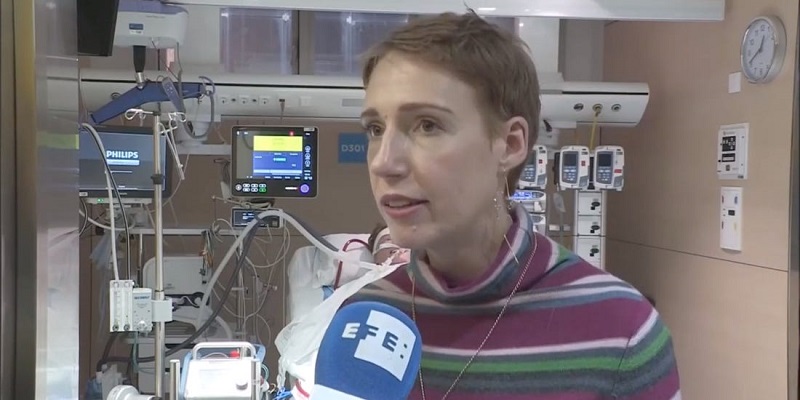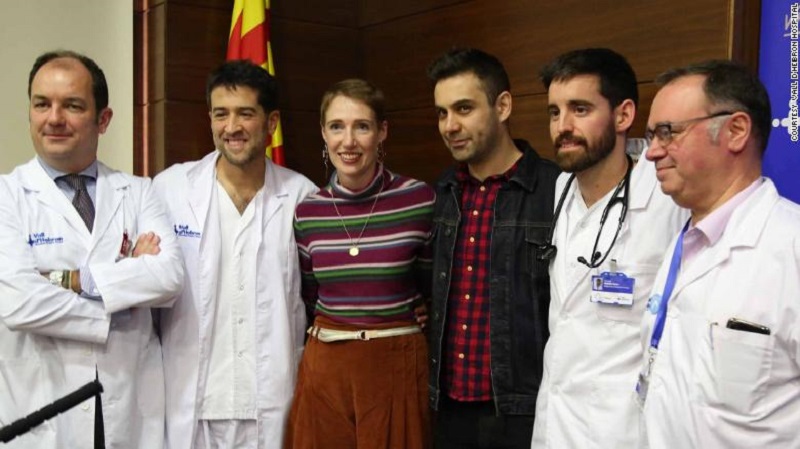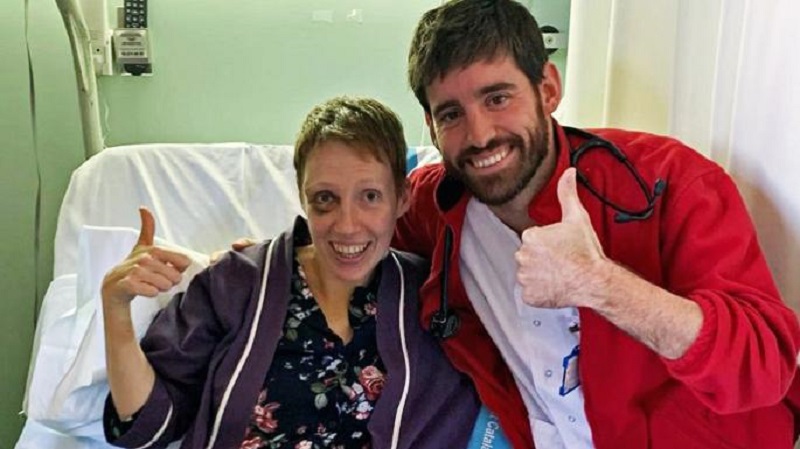Woman recovers after heart stops for six hours

A woman recovered after her heart stopped beating for six hours. This miracle happened thanks to a well-prepared team of doctors from Vall d’Hebron hospital in Barcelona, Spain.
In the first place, her case impressed the doctors because it is one of the longest-ever recorded cardiac arrests.
Audrey Schoeman is a 34-year-old British teacher who lives in Barcelona. She is an avid hiker and goes to the mountains with her husband at least once a month. But accidents can happen to experts too.
While she was hiking in the course of a snowstorm around the Pyrenees mountains of northern Spain, Audrey developed extreme hypothermia. Although her body temperature collapsed, it was the cold who actually saved her life.
Even if Schoeman cannot remember anything after the accident, her husband Rohan says she started to behave strangely. In the early afternoon, Audrey stopped moving and lost her conscience.
Audrey’s body temperature had plummeted to 18ºC

By the time she was transported to the hospital, her body temperature had decreased to just 18ºC (64.4ºF). You should know that the normal body temperature is 37ºC (98.6ºF).
But after six hours in cardiac arrest, Audrey managed to breathe again, rescued by doctors. They claim that her hypothermic condition protected her brain from lethal damage.
In addition, dr. Eduard Argudo declared that “If she’d been in cardiac arrest for that long with a normal body temperature, we’d have been certifying her death. But we knew that the severe hypothermia meant that we had a shot at saving her, thanks to the ECMO.”
An ECMO (extracorporeal membrane oxygenation) is a machine that takes the place of the lung or heart function. It removes blood from the subject, pouring it with oxygen, and circulating it back around the body.
In the same way, ECMO allows doctors to control the blood’s temperature. They increased it until Audrey’s body temperature reached a point where they could use a defibrillator to make her heartbeat normally again.
“And it happened just like that: her heart started beaten autonomously again,” declared Dr. Argudo.
The experience has also not deterred Ms. Mash from hiking

Reasonably, she was still very ill: her major organs were struggling from the hours of turmoil and lack of oxygen. But after 12 days of permanent treatment, Audrey was released from the hospital with just a few afflictions.
Of course, after the accident, Ms. Mash has some mobility issues in her fingers. This means she cannot do buttons or put accessories in on her own, but she hopes that things will get better.
Although Audrey doesn’t remember anything about the traumatic experience, she is so grateful to the doctors that she calls them “absolute heroes who should be in the limelight for this.”
If you’re curious, the accident won’t stop Ms. Mash from her favorite activity, hiking, but she will surely stay away from the mountains in winter.












































